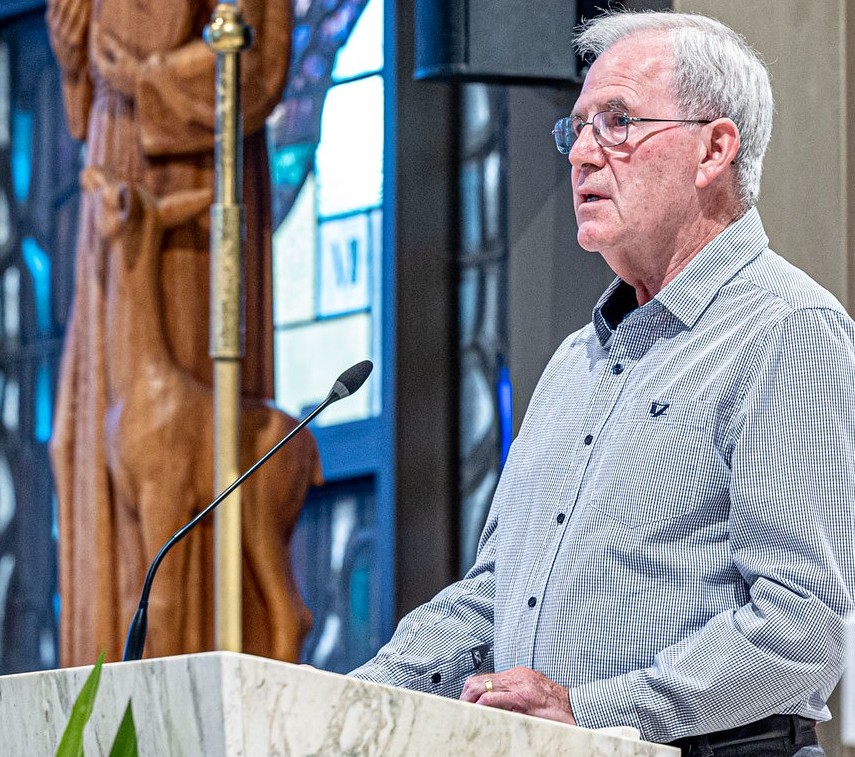Ministers of the Word
NLC ARTICLES

This article highlights the significance of lay ministers who proclaim Scripture at Mass, underscoring the reverence and preparation their role requires.

This article explores the spiritual and practical dimensions of being a Minister of the Word, focusing on faithful proclamation and active listening.
DIOCESAN RESOURCES

Adelaide
This downloadable resource consists of guidelines for Ministers of the Word in the Archdiocese of Adelaide. It describes the preparation involved and what is involved in proclaiming the Word of God on Sunday. Some techniques are offered.

Canberra-Goulburn
This downloadable resource offers guidelines for Ministers of the Word in the Archdiocese of Canberra-Goulburn. It describes the historical background and scriptural and liturgical aspects of proclamation and the qualities of ministry. Communication tips are included.
This downloadable resource includes four biblical extracts that speak of the power of God’s Word. Readers are invited to respond to each and reflect on their liturgical ministry as proclaimers of the Word.

Perth
This downloadable resource contains guidelines for Ministers of the Word in the Archdiocese of Perth. It contains an outline of the role of the reader, including a definition of instituted Lectors, and includes a discussion of the practical and spiritual preparation required. The Liturgy of the Word is explained and some hints on how to read effectively are offered.
This downloadable resource contains a reflection for Ministers of the Word who seek to renew and invigorate their ministry. It describes the importance of the Word of God and some small exercises for personal reflection.

Wollongong
This downloadable pamphlet describes aspects of ministry including discernment, the Liturgy of the Word and the importance of good preparation.
OTHER RESOURCES
Journal Articles

Preaching is the art of naming God’s grace, of putting words on what the Spirit is doing, and of calling into life what God is offering people. By the preacher listening to what is happening in people’s lives, to what the Spirit is whispering to us in the silence of our prayer-times, and to what God is asking of each one of us, the better the Word of God through whom we came into being can resonate through the act of preaching.

Working in a group can help readers with their biblical, liturgical and technical preparation, as it gives readers the ability to understand the readings in context and to perceive by the light of faith the central point of the revealed message. The reader has responsibility for not simply reading the word, but assisting the assembly to hear the word, as the impact of God’s message will depend significantly on their conviction, their preparation, and their delivery.

It is beholden upon the reader to prepare God’s Word with care and deliver it with authority and knowledge, as good proclamation allows the flesh of the Word to come to life in the hearts, minds and flesh of the assembly. Readers require good preparation and honing of their skills to proclaim the Word of God and allow it to touch the hearts of the people.

The human voice is the primary instrument of the word, through which God’s word is proclaimed in the liturgy by a person of faith for a community of faith. The mechanisation of the word, or its electrification through microphones, amplifiers and speakers, should support the human act but not overwhelm it.

